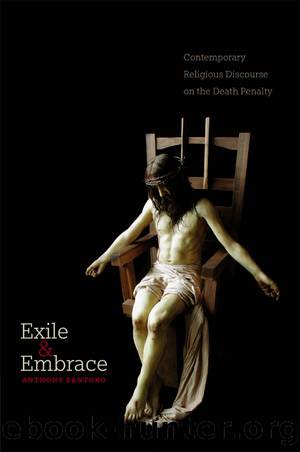Exile and Embrace by Santoro Anthony;

Author:Santoro, Anthony;
Language: eng
Format: epub
Publisher: Northeastern University Press
Evolving Standards of Decency
The Eighth Amendmentâs prohibition against cruel and unusual punishment had been recognized as constantly in flux by the late 1950s. The phraseâs precise meaning had been debated in different contexts for some time but was settled in Trop v. Dulles, which declared that although âthe words of the Amendment are not precise, and ⦠their scope is not static,â they must âdraw [their] meaning from the evolving standards of decency that mark the progress of a maturing society.â These evolving standards are typically found in the âinstrument[s] of evolution ⦠[which are] the Congress of the United States and the legislatures of the fifty states.â This coincides with the idea of the law as the extension of public reason. As defined by John Rawls, public reason applies in three cases in particular: in âthe discourse of judges in their decisions, and especially of the judges of a supreme court; the discourse of government officials, especially chief executives and legislators; and finally, the discourse of candidates for public office.â If legitimate law is defined as âthe legal enactment expressing the opinion of the majority,â then laws enacted by state legislatures can be seen as the most reflective of the majorityâs opinion. Indeed, in Penry v. Lynaugh, the Court pointed to the various state legislatures as providing the âclearest and most reliable objective evidence of contemporary valuesâ in declining to find execution of the mentally retarded per se unconstitutional.43
Others, however, reasonably fault this method of focusing on the legislatures to the exclusion of other sources of âobjective evidence.â For one thing, as the United States Conference of Catholic Bishops (USCCB) argued in its brief in Atkins, the Eighth Amendmentâs prohibition of cruel and unusual punishment has historically been understood as a check against the legislatures, âhence its scope cannot depend exclusively on what legislatures do.â A brief submitted in Roper highlights the problem posed by exclusive reliance on state legislatures. The amicus, the Missouri Ban Youth Executions (BYE) Coalition, pointed to polling conducted by the usccb that found that Missourians favored banning juvenile executions 59â25, with 16 percent expressing no opinion. State legislators favored a ban 47â13, with 12 percent undecided and 28 percent not responding to the poll. Despite this apparent support for a ban, the legislature did not change the law accordingly.44
Roper drew much of its rationale from Atkins. In Atkins the Court extended both the idea of public reason and the basis from which the necessary objective evidence of the communityâs evolving standards should be drawn by explicitly naming the churches as âadditional evidenceâ of the national opinion on the matter.45 This brought the evolving standards analysis into line with what the churches have been claiming throughout the modern era, which is that they are among those uniquely positioned to provide objective evidence of the communityâs moral standards. The method by which this objective evidence is to be supplied, however, remains incompletely defined.
Arguing for an expansive reading of Penryâs observation that the Court relies on objective
Download
This site does not store any files on its server. We only index and link to content provided by other sites. Please contact the content providers to delete copyright contents if any and email us, we'll remove relevant links or contents immediately.
| Africa | Americas |
| Arctic & Antarctica | Asia |
| Australia & Oceania | Europe |
| Middle East | Russia |
| United States | World |
| Ancient Civilizations | Military |
| Historical Study & Educational Resources |
Cecilia; Or, Memoirs of an Heiress — Volume 1 by Fanny Burney(32062)
Cecilia; Or, Memoirs of an Heiress — Volume 3 by Fanny Burney(31458)
Cecilia; Or, Memoirs of an Heiress — Volume 2 by Fanny Burney(31409)
The Secret History by Donna Tartt(18163)
Sapiens: A Brief History of Humankind by Yuval Noah Harari(13990)
Leonardo da Vinci by Walter Isaacson(12804)
The Radium Girls by Kate Moore(11621)
Sapiens by Yuval Noah Harari(5123)
How Democracies Die by Steven Levitsky & Daniel Ziblatt(4958)
The Wind in My Hair by Masih Alinejad(4843)
Homo Deus: A Brief History of Tomorrow by Yuval Noah Harari(4690)
Endurance: Shackleton's Incredible Voyage by Alfred Lansing(4506)
Man's Search for Meaning by Viktor Frankl(4275)
The Silk Roads by Peter Frankopan(4274)
Millionaire: The Philanderer, Gambler, and Duelist Who Invented Modern Finance by Janet Gleeson(4099)
The Rape of Nanking by Iris Chang(4023)
Hitler in Los Angeles by Steven J. Ross(3798)
The Motorcycle Diaries by Ernesto Che Guevara(3787)
Joan of Arc by Mary Gordon(3782)
